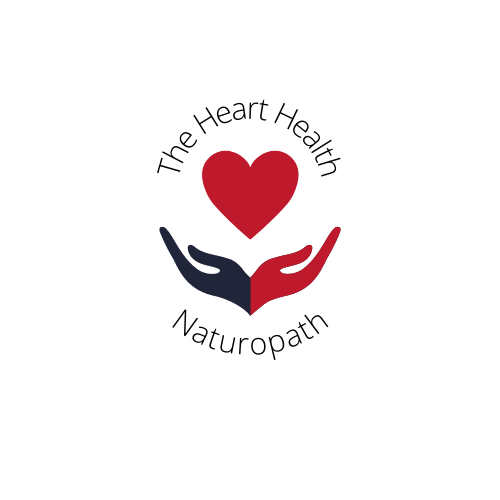What You Should Know about High Blood Pressure
- The Heart Health Naturopath

- May 23, 2021
- 4 min read
Updated: Nov 19, 2022
A quick overview and some natural tips and tricks to help reduce that elevated BP...

Last Monday the 17th of May was World Hypertension Day- a day created to increase hypertension awareness, as a staggering 50% of people don’t know they have it!
- Why it is important to check and monitor your blood pressure
- What the signs and symptoms of hypertension are
- How to accurately measure your BP at home
There are of course different types of hypertension, with different causes. They include:
• Essential/primary hypertension: the most commonly diagnosed form of hypertension. The main reasons that cause essential hypertension is genetics and lifestyle factors such as poor diet, obesity, lack of exercise. This type of hypertension is the most responsive to dietary and lifestyle changes.
• Secondary hypertension is when one’s blood pressure is elevated and this is due to a direct cause. Most commonly it is a result of:
- Medications (e.g., NSAIDS, corticosteroids, HRT, amongst others);
- Chronic kidney disease
- Thyroid disease
- Cushing’s syndrome
- Adrenal hyperplasia
- Menopause
Poorly controlled BP can lead to malignant hypertension, which is a medical emergency. Hence, this is why I'm a big proponent of regularly checking your BP. If you are reading this & have missed that check-up at the doctor's office, use this moment to make that appointment!
Many pharmacies also do complementary BP checks, so pop into one next time you walk by. Alternatively, if you are prone to something called, “whitecoat hypertension”, consider buying your own BP monitor for home. Whitecoat hypertension is not uncommon and is when some people’s BP increases whilst being nervous or anxious at the doctor’s or naturopath’s office, therefore showing a possible false-positive reading.
When should you be concerned?
The optimal BP reading is 120/80 (systolic/diastolic). As we get older, our blood pressure tends to go up and so there are different levels of what is acceptable. However, if your BP is above the optimal 120/80 I believe that undertaking dietary and lifestyle changes is imperative to reduce progression.
Above, I mentioned malignant hypertension. This is when your systolic is equal to or over 180 and/or your diastolic is over 120mmHg, and it is a case where you need to get in contact with emergency services.
If you have checked your BP at home, or at the pharmacy and your reading is high, I highly recommend you make an appointment with your GP to check the possible reasons for your high BP. As mentioned above, it can be your medications or another unmanaged condition. Once you have established the cause of your high BP you can then contact yours truly and we can start working on reducing it.
Naturopathic Aims
As a naturopath, I work on a case-by-case basis and have an individualised approach. There are however a few tips I can give you here to help reduce your BP naturally. Now of course I have to mention that if you are on any medications, it is best to book an appointment with me so we can figure out the right course of action for you. If you are already on medications for your blood pressure (or on meds for something else), you should always be monitored if making changes that can reduce your BP.
- Increase foods high in potassium (if you are on potassium-sparing diuretics do not do this without supervision). Sweet potatoes, cooked broccoli, cooked spinach, bananas, orange fruits, mushrooms
- Increase foods high in magnesium. Magnesium is a natural vasodilator, hence relaxing the blood vessels and reducing blood pressure. Foods high in magnesium include leafy green vegetables (kale, spinach, silverbeet, rainbow chard etc), seeds, raw cacao
- Garlic is naturally hypotensive (i.e., reduces blood pressure). You can add in daily garlic cloves into your diet, however do not do this if you are on blood thinners!
- Eat 4 stalks of celery per day. Celery contains compounds that are hypotensive
- Limit your caffeine intake to 100mg per day (this equates to about 1 cup of coffee)
- Take measures to reduce your salt intake
- Get moving! There is evidence to show 45 minutes of aerobic exercise per day can help in reducing elevated BP. This also has the secondary effect of reducing stress levels (which is involved in high BP). If you're currently not active, start slow. Some exercise is better than none
- Consider a whole food plant based diet, or dramatically increase your intake of plant foods. Evidence of the WFPB diet has consistently showed that it is the best diet for prevention of coronary artery disease and can likewise assist to reduce elevated blood pressure levels.
There are many herbal medicines which too are useful in the reduction of elevated blood pressure, however I don’t ever recommend self-prescribing herbs and you will get the best results when you are taking the right dosage and making sure the herbs don’t interact with any medications you may be taking.
If you would like to consult with me on an individual basis regarding this, email me here: info@hearthealthnaturopath.com. I also offer complementary discovery calls where we can first chat about your concerns before you decide if you would like to book in.




Comments